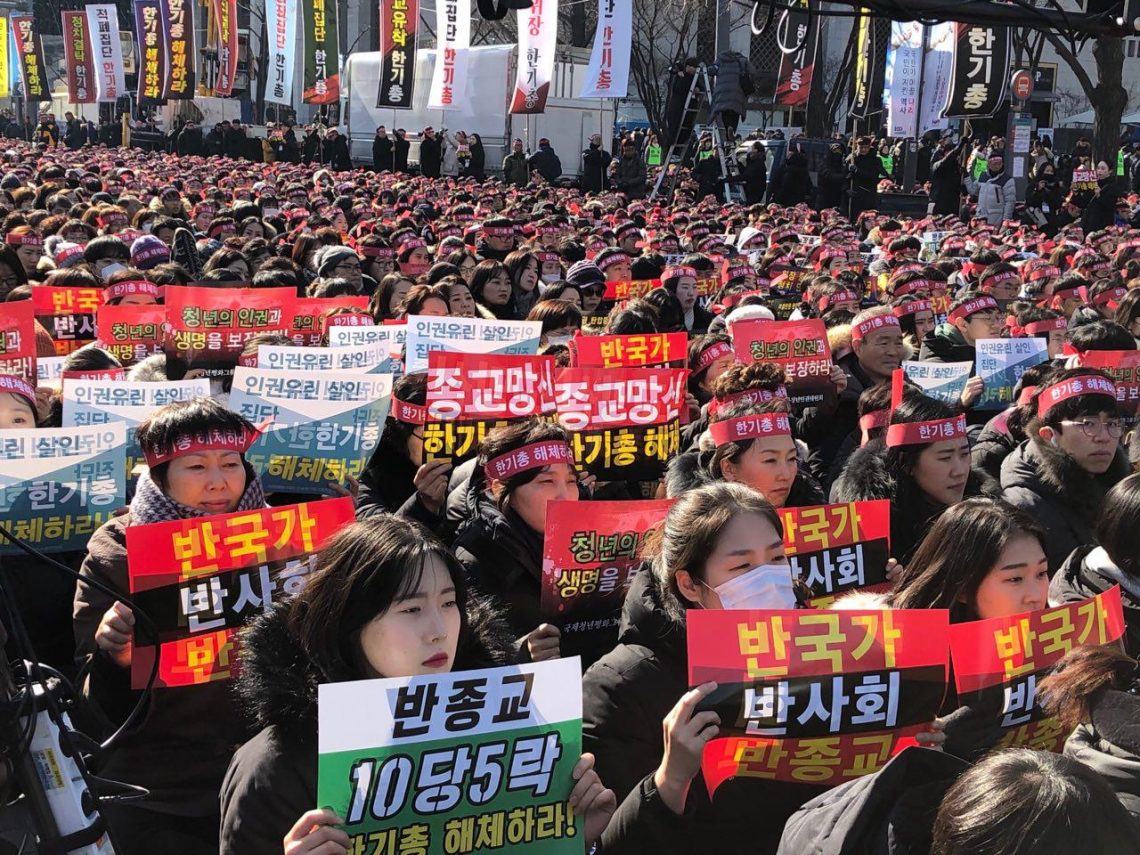United Nations World Interfaith Harmony Week is observed from the 1-7 February with the purpose of recognising that the moral imperatives of all religions, convictions and beliefs calls for peace, tolerance and mutual understanding. In the wake of encouraging all countries worldwide to support and spread the message of interfaith harmony, blatant violations of the right to religious freedom and the abuses committed by religious institutions continue.
In South Africa, the Commission for the Promotion and Protection of the Rights of Cultural, Religions and Linguistic Communities (CLR Commission) is having to increase its activity to mediate various infringements committed by religious institutions, while internationally in Seoul, South Korea civil society organisations are calling for the government to intervene and close down religious institutions abusing individuals ‘rights to practice their religion freely.
On Sunday 27 January more than 30,000 people gathered at Gwanghwamun with around 100 civil society organisations and religious groups calling for the shutdown of the Christian Council of Korea (CCK for short). The CCK is well known for its corruption and anti-nation, anti-society, and anti-religious actions as well as their well-publicised and blatant disregard for religious freedom through coercive conversion programs.
Severe violations of religious freedom threaten the stability and security of nations and regions, underscoring the importance of all states to address and prevent abuses of this fundamental human right.
The Secretary General of The Global Citizens’ Human Rights Coalition to Call for the Shutdown of the Christian Council of Korea (the Coalition), Shinchang Kim, hosted a press conference and rally in Gwanghwamun Square, Seoul, on Sunday 27 January with around 30,000 citizens in attendance. The CCK is accused of being an Anti-Nation, Anti-Society, Anti-Religion, and Anti-Peace organization.
The Coalition comprises of 100 organisations in South-Korea including the International Women’s Peace Human Rights Commission, the Christian Association for Anti-Corruption National Movement, and the World Buddhist Summit, amongst others.
It was revealed that with the upcoming CCK chairperson elections on the 29th if this month, and the CCK being granted indemnity for its various crimes due to its position as the “face” of Christianity in Korea, the day’s rally had been organized as a means to publicise the true nature of the CCK to the South Korean president, government, and the press. The CCK are exposed for its pro-Japanese actions in the past and its history of active involvement in politics during the military rule of Korea when they showed support for the amendment of the Korean Constitution. The main concern was the CCK’s continued attempts to protect its position of dominance, producing false news in response to the growth of churches not registered to the CCK and accusing them of being alleged cult organisations. These and other actions bring about division and confusion within religious circles.
Furthermore, the absurd situation where the lives of citizens are still being threatened as a result of continued coercive conversion programs, despite two women having been killed as a result of these programs, was made known at the event. Members of beliefs that are not part of mainstream religions are the target of these coercive conversion programs. Representatives of the Coalition called for active intervention on the part of the government.
A spokesperson for the Human Rights Association for Victims of Coercive Conversion (HAC) in South Africa, Ms Siyabuka Tunyiswa, earlier said that “The CCK is a source of shame for their country and religion in the global society. The Korean government should act swiftly and hold the CCK accountable for their criminal activity – it should be shut down. They should be stopped from their continuous infringement of people’s universal right to freedom of religion and life.”






